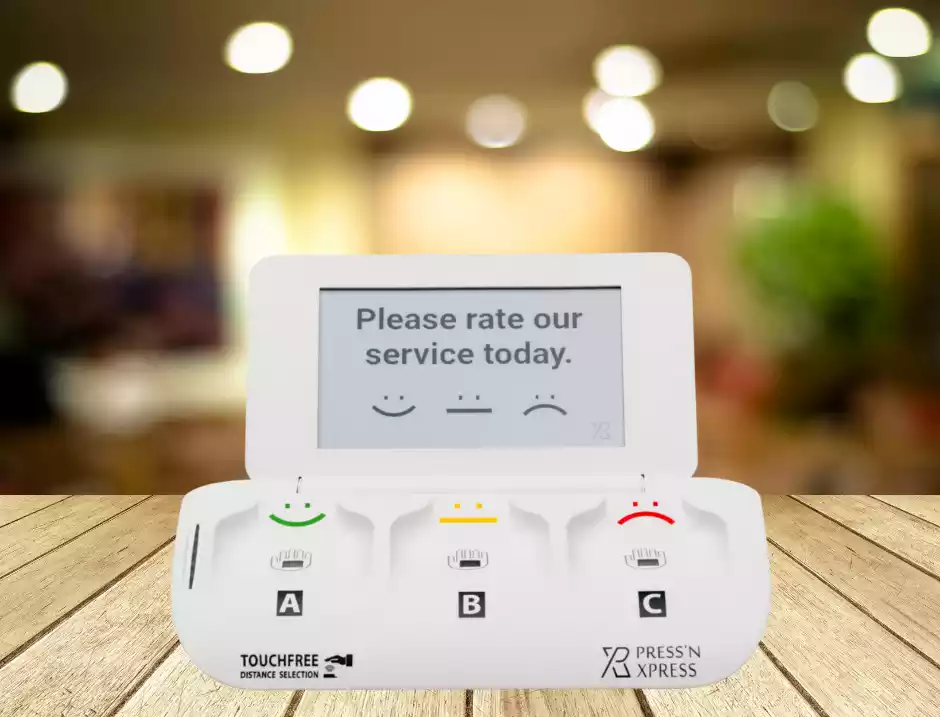
The Importance of Customer Feedback in Enhancing Customer Experience
Understanding customer feedback is essential for companies in all industries. By actively gathering and analyzing feedback, businesses can identify areas for improvement, make informed decisions, and ultimately enhance overall customer satisfaction. These insights offer a unique perspective on operations from the customer's point of view.
Customer feedback allows businesses to identify weaknesses and opportunities throughout the entire customer journey, from the first interaction to post-purchase. In today's experience-focused market, feedback is critical not only for meeting expectations but for surpassing them through ongoing improvement.
Feedback provides a clear picture of the customer journey, revealing pain points and opportunities from initial contact to final purchase. As customer expectations continue to rise in the digital age, leveraging feedback is crucial for businesses to exceed these expectations.
An effective feedback strategy demonstrates to customers that their opinions are valued. Customers appreciate being heard and seeing their feedback influence company policies and practices. This fosters loyalty, as customers feel their support is valued.
Improving customer satisfaction through feedback strategies can directly boost revenue and growth. Satisfied customers are more likely to return and recommend the business, leading to positive word-of-mouth and online reviews that attract new customers. Feedback allows businesses to make data-driven decisions to optimize operations and maximize customer lifetime value.
Collecting Customer Feedback
Modern technology provides businesses with straightforward and non-intrusive methods to collect customer feedback. Devices like smiley feedback kiosks and tablets enable customers to quickly rate their satisfaction or leave open-ended comments.
Strategically placing feedback devices throughout the customer journey helps businesses gather insights from multiple touchpoints. For instance, a restaurant might place feedback tablets at the host stand, on tables, and at the exit. Customers appreciate the convenience of providing feedback quickly.
Feedback systems that gather qualitative data through choice questions or open-ended comments provide the most valuable insights. Understanding the reasons and emotions behind feedback helps businesses identify specific issues and make targeted improvements. This detailed data enables precise actions to delight customers.
By making the feedback process quick and easy, more customers are willing to provide insights compared to lengthy surveys or forms. This convenience leads to higher response rates and comprehensive feedback data.
Monitoring Real-Time Feedback
While periodic surveys are valuable, real-time feedback collection systems enable businesses to monitor and address issues promptly. This method is particularly beneficial for industries such as retail, healthcare, hospitality, and facility services.
For instance, a retail store might place a feedback tablet near the checkout counter. If multiple customers report long wait times, staff can be alerted in real-time to open more registers or call for backup. Swift action prevents customer frustration and improves the checkout experience.
Real-time data allows businesses to address problems as they arise. Issues like staffing gaps, long queues, and slow service can be quickly identified and resolved. For larger companies, analyzing data across locations helps identify systemic issues versus isolated incidents.
Quickly resolving issues prevents minor problems from escalating into larger complaints that could damage the customer experience. Customers appreciate rapid resolutions, which enhances satisfaction and loyalty.
Analyzing Trends in Customer Feedback
Individual feedback provides situational insights, but the real value lies in analyzing trends and patterns. Regularly monitoring and comparing customer feedback metrics helps identify improvement opportunities.
For example, a hotel might survey customer satisfaction with check-in, room cleanliness, and other touchpoints. If cleanliness ratings decline, the hotel can investigate whether the issue is isolated to a particular room, floor, or staff member, and take targeted action.
Metrics can be tracked over time to assess the impact of changes. For instance, if a restaurant renovates its interior, it can compare feedback before and after the renovation to see if ambiance ratings improved. Customer feedback helps determine if investments like renovations achieve their intended outcomes.
Implementing Feedback Strategies
Collecting data is important, but taking action on insights is where businesses truly benefit. Customer feedback is only valuable if it leads to operational changes.
Start by identifying key areas for improvement from the data. Focus groups or customer advisory panels can help explore feedback themes and root causes. Prioritize areas with the biggest potential impact.
Create an action plan to address these opportunities. For example, if service speed is a frustration point, the action plan might include staff training, updating point-of-sale systems, and managing lines during peak times. Set goals and benchmarks to measure progress against feedback metrics.
Communication is crucial for the success of a feedback strategy. Ensure customer-facing teams are aware of changes based on feedback. This closes the loop for customers, showing that their input leads to tangible improvements.
Continuously Optimizing
Customer feedback strategies require ongoing monitoring, analysis, and adaptation. Set reminders to review feedback metrics and action plans regularly.
Consider creating customer journey maps updated with the latest insights. Keeping the customer perspective central helps uncover blind spots and opportunities. Appoint team members to oversee the feedback strategy and integrate it into operations.
Solicit ideas from frontline staff as well. Employees who interact directly with customers often have valuable insights. Empower them to address feedback within reason.
To maintain momentum, celebrate wins and milestones achieved through feedback initiatives. Recognize teams and staff members who played key roles. Keep the focus on enhancing the customer experience as the driving motivation.
Customer feedback provides invaluable, objective insights that can transform business practices and drive growth. By actively capturing feedback across channels, analyzing data to uncover opportunities, and taking action on insights, businesses can continuously improve and exceed customer expectations.
If you are ready to revolutionize your customer experience and gain a competitive advantage, learn more about how Press'nXPress can transform your business. Visit Press'nXPress website and request a demo today to see our real-time CX platform in action.
Our mission at Press'nXPress is to help our clients improve customer satisfaction by continuously monitoring customer experience. You can reach out to our experts to see how PXP Feedback Solution can benefit your business today! If you have questions or would like to learn more, get in touch. Reach out and talk to us.




